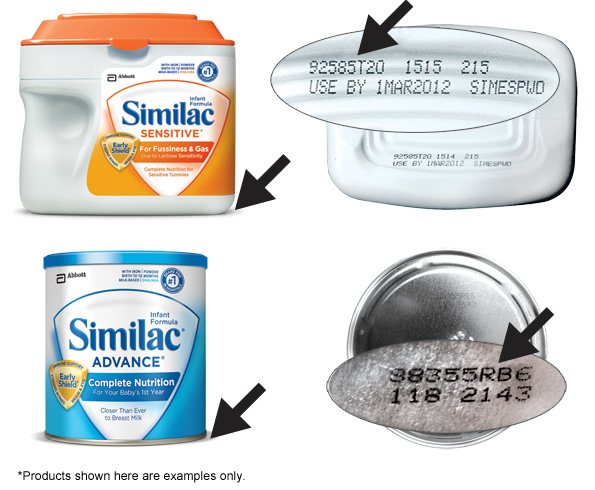 Top Class Actions
Top Class Actions
Beetle Juice? Abbott—the makers of Similac infant formula–which was recalled this week due to the presence of small winged insects in the formula—and Sam’s East doing business as Sam’s Club—are facing a proposed federal class action lawsuit over the whole mess.
The products, in case you missed the recall, apparently may contain additional nutrients in the form of a ‘small common beetle.’ Nice. And while the FDA seems to think that no real harm can come from this, they do warn that infants who consume the contaminated formula could experience symptoms of gastrointestinal discomfort and refusal to eat as a result of small insect parts irritating the GI tract. And every parent wants their child to experience that.
So, Kathleen A. Brandner filed the suit individually and on behalf of her minor child alleging that the defendants unfairly and deceptively promoted the product as having safe ingredients for infant consumption when the ingredients may cause health problems including diarrhea. And, the suit also alleges that Abbott failed to properly exert quality control measures to ensure that the formula was safe for consumption and that it did not contain beetle particles. You think?
How Generous of DePuy…Not. A national class action lawsuit was filed against DePuy Orthopaedics Inc this week, this one also stemming from a recall on August 24, 2010, of its ASR XL Acetabular System hip replacement. The recall was prompted by a report published in Britain which showed unacceptable failure rate of the device, resulting in revision surgery for 13 percent of patients within five years.
Given the large number of devices recalled, it is conceivable that thousands of individuals across the United States may unknowingly need revision surgery, even if they are currently not experiencing any pain or discomfort, a lawyer representing the plaintiffs said. Although the company announced it will reimburse “reasonable medical expenses” to patients who sign releases providing DePuy complete access to their private medical records, the “offer” may be misleading.
Lawyers representing the plaintiffs state that in their opinion, “DePuy’s ‘offer’ may deceive potential claimants into believing that the company has actually agreed to advance or reimburse their costs for medical monitoring or revision surgery. However, no specific offer to pay medical costs has been made and no specific plan for reimbursement has been announced. Moreover, DePuy has stated that before reimbursement of expenses will be provided, it will review the patient’s medical records to determine if the patient meets DePuy’s criteria for payment.
According to DePuy, the medical records must confirm that the revision is related to the ASR recall and ‘not some other type of cause, such as a traumatic fall.’ Blaming the device failure on a fall, or another cause, such as physician error, patient misuse, pre-existing condition or underlying diseases is a standard litigation defense in these types of cases. Thus a patient who releases medical records to DePuy may do nothing but provide DePuy with a jump start on litigation defenses.”
Top Settlements
One for Me…One for You…Another for Me… The Hartford settlement made quite a splash this week in the media. A federal judge has approved a settlement of $72.5 million to settle claims that the insurer short-changed some 22,000 injured claimants through structured settlements.
Of course Hartford did not admit to any wrongdoing. They don’t need to—the facts speak for themselves.
The case, filed in October 2005, alleged the insurer settled personal injury and workers’ compensation claims dating back to 1997 by using structured settlements written as annuities through its own subsidiary. Hartford allegedly did not disclose that it held back 15 percent of the structured settlements to pay itself for profits, taxes and expenses, the lawsuit said.
Plaintiffs’ attorneys argued Hartford was engaged in racketeering in violation of the federal Racketeer Influenced and Corrupt Organizations Act, and had demanded a jury trial.
According to the press release, each plaintiff could reportedly receive, on average, $3,300 from the settlement.
Ok—that’s it for this week. I hear the bar calling my name.
